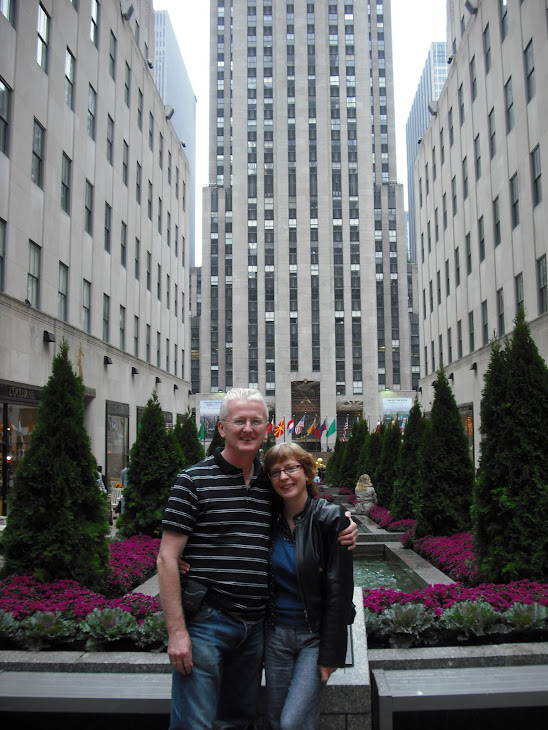The care of a person living with MND involves a multi-disciplinary approach. That's what they told us at the beginning and in recent weeks, we have had numerous appointments with various members of Team Roch to prove the point. We have calculated that the members of Team Roch now number 20 - this includes Christian and David, his two personal assistants, but excludes immediate and extended family members. I don't know how many people are on Team Andy Murray, but I would be surprised if their numbers could rival Team Roch.
As you see from recent posts, we've had contact with Occupational Therapist Shelley, from Richmond Social Services - who provided the hoist, an appointment with Neurology at the West Middlesex Hospital (more anon), and back to back appointments at Richmond Neuro Rehab Centre with Shahid (podiatrist) to discuss the fashioning of a splint for the errant big toe (Roch likes to say this has 'declared independence from the rest of his body') which he can no longer raise, thus making it practically impossible to put on his shoe, Amber (physiotherapist) about the shoulder socket pain and neck discomfort, Mary (nutritionist) about weight loss and diet. Jenny (OT from Richmond NRC) came to visit us at home. Amongst other things, we discussed with her the shoulder socket pain and whether this could be alleviated by a softer mattress topper. This poses its own problems, as it could make it even more difficult for Roch to turn in bed (already problematic) and it would have to be a single mattress, as a double wouldn't fit our kingsize bed. A single will be too big (I can just see myself with two inches of bed to myself, clinging on for dear life), but we discussed the possibility of tucking it in more on his side. We'll see how it goes. We don't need the hospital bed just yet and want to hold out against it for as long as possible. That will be a real turning point - getting rid of our double bed. But it's not happening yet.
Amber and Mary usually come to see us at home, but as Shahid needed to use some equipment in order to customize the splint, we agreed to go along to the Rehab Unit in Evelyn Road ourselves, as we used to do in Roch's more able days, and see everyone there. It proved exhausting for him and I couldn't help remembering the days when he could walk (albeit slowly) with the aid of sticks from Evelyn Road to a coffee shop on the Richmond road, where we enjoyed many a cosy chat. This time, despite his weariness, I rolled him along to have a snack there, as before. But there was a sense that the outing had taken too much out of him and it was a relief to get back home.
The most significant appointment was our meeting with Professor Al-Chalabi at King's College Hospital last Thursday. This time friend Gerry volunteered to drive us there. This offer was a Godsend as it meant I could relax, leave the stressful drive to someone else and concentrate completely on our appointment. (Hospital transport is available, but only for Roch, which means we can't travel together, and synchronising our arrival both to the hospital in Denmark Hill and home again makes the whole experience rather too stressful).
Although Professor Al-Chalabi cannot give us good news (we don't expect this), his professional expertise, the depth of his knowledge, coupled with the respect, space and time he gives to Roch, always makes visits to his clinic worthwhile. You do feel safe in his care. Although this visit left us a little bit more emotionally bedraggled.
He told us that he judges Roch to be in Stage 3 of the disease. We were somewhat puzzled by this, as he hadn't mentioned stages before. He explained that there were 4 Stages, Stage 4 being the final stage. This was a bit of a sickener, actually. He followed it up with telling us that by his reckoning, being in Stage 3, Roch has travelled 60% of the journey. I felt myself pale, and a chill went right through me. For some reason it all suddenly felt horribly real. I actually had no idea we had travelled so far. Of course we had noticed his deterioration over recent months but I had somehow succeeded in deluding myself into thinking that we weren't really that far along the way. We made some calculations as Gerry drove us home - if he had the first symptoms in - let's say December 2007, and that's five years ago - and that's 60% of the journey - well, I'll leave you to do the Maths yourself. On the surface we were all businesslike and brisk about it, but underneath I know I felt gut punched.
Roch asked Professor Al-Chalabi how likely it was that he would die still retaining the power of speech. His answer was clear - if the diaphragm muscles go first, there's a higher probability that speech will be retained to the end - if the throat and mouth muscles go first - well, you get the picture. It makes sense. I guess now we wait and see. There are no guarantees.
What we like about Professor Al-Chalabi is the fact that he answers our questions directly. That suits us. No doubt he tailors his approach to suit individual patients. But at least you get answers in a sea of uncertainty. At the West Middlesex they do their best, but their best is to monitor his decline and we are lucky if we come away with more than an admonition to 'stay positive'. Yes, well. That's easy for them to say, and as a matter of fact, I think we do pretty well most of the time. Lately it's been feeling a bit more difficult, but we've had blows before and we've recovered from them. A good antidote is planning for pleasure, I find, and with Christmas just around the corner, there will be plenty of opportunities for partying and good cheer. Now if we've come through 60% of our remaining Christmases, and that was five Christmases - how many Christmases are left?
Tuesday, 13 November 2012
Subscribe to:
Comments (Atom)

